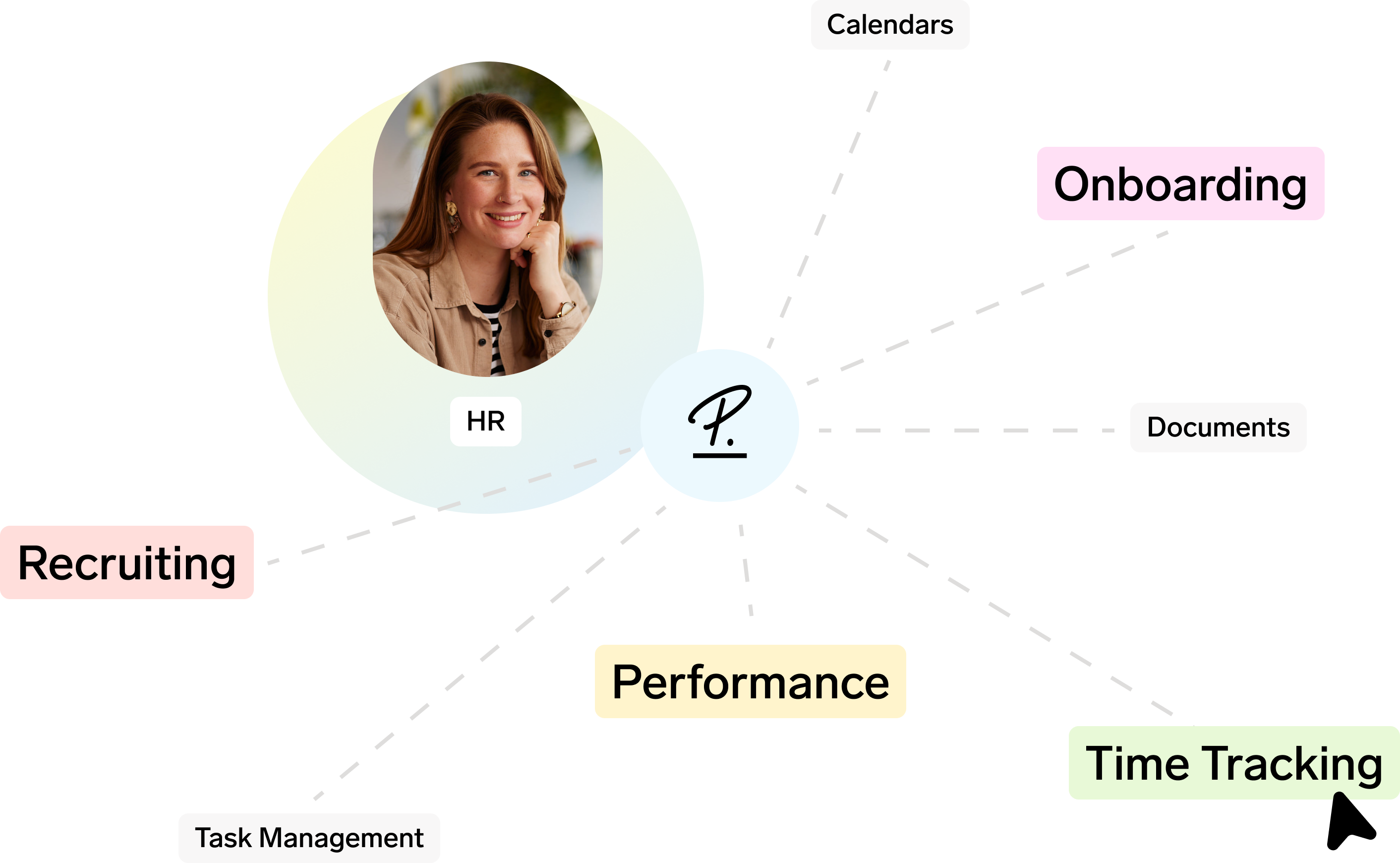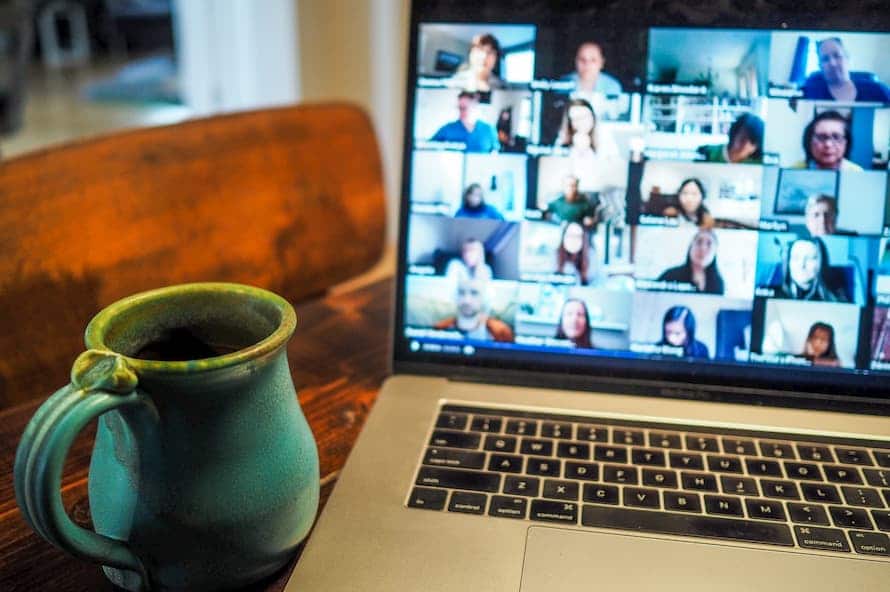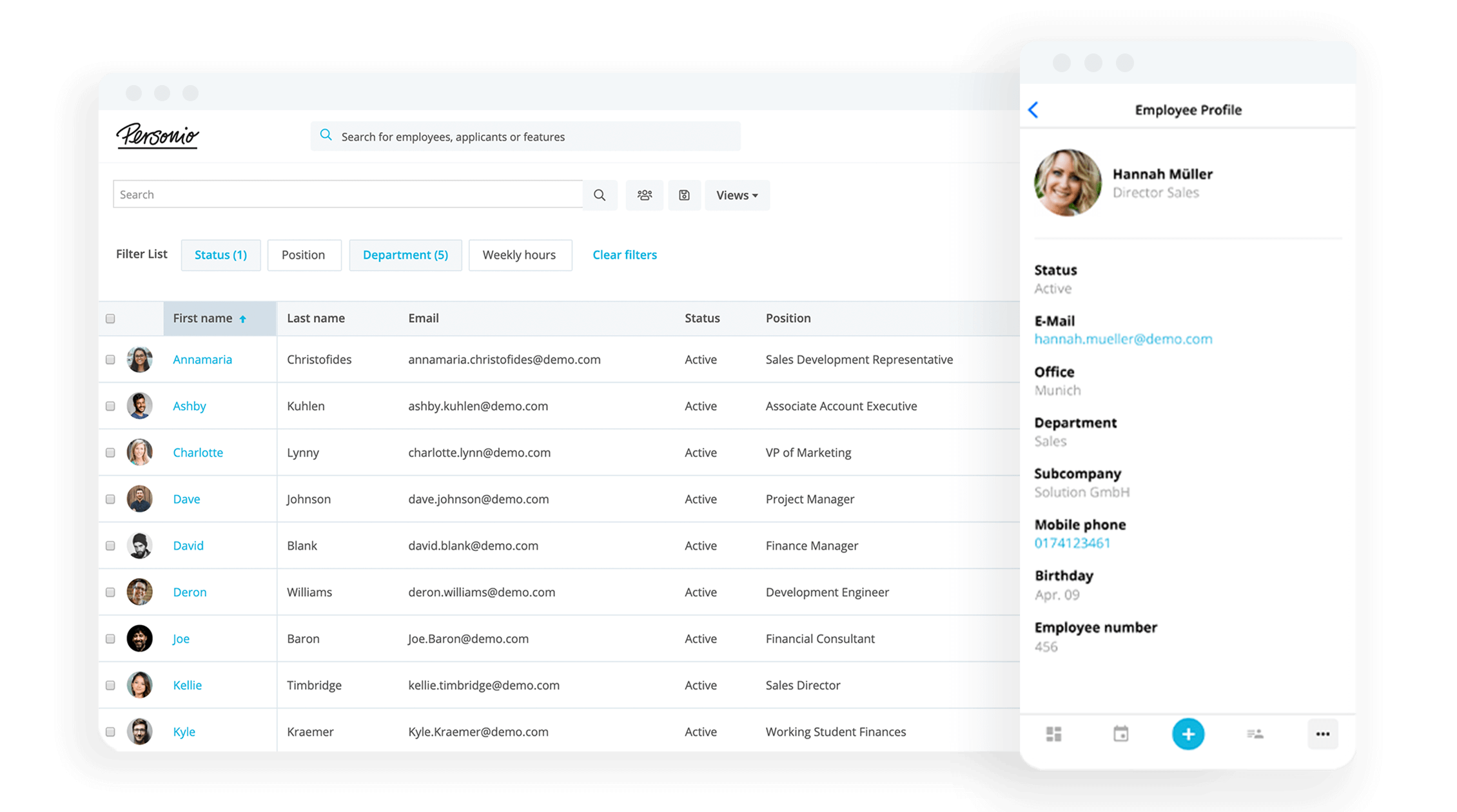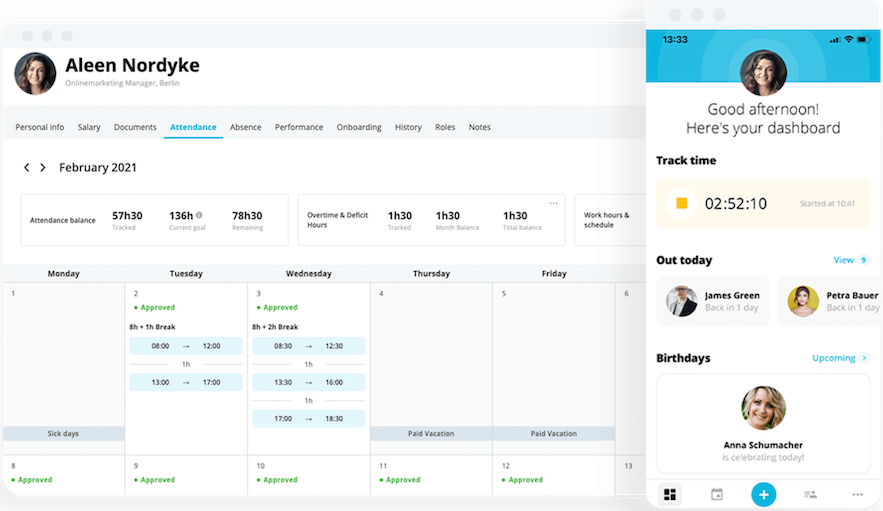
Automate Your HR Admin Tasks
Build accelerated, automated HR processes throughout your organisation – unlock the time you need to focus.
Discover Personio's AutomationNavigating the Landscape of the Modern Workplace

The way we do business today looks quite different from that of previous generations. The changes brought about by the modern workplace have generated plenty of workplace discourse buzz. But what exactly does it mean to say your organisation is a modern workplace? Below you’ll find what a modern workplace entails and how to avoid some of its potential challenges.
Key Facts
A modern workplace is centred around technology, procedures and collaborative practices that enable a more agile and adaptable workforce.
While every modern workplace will look slightly different, they share core features like prioritising tech that enables fast collaboration and communication.
HR is often heavily involved in the modern workplace, formulating policies and workflows that ensure a successful implementation.
What is a modern workplace?
A modern workplace comprises the technology, procedures and collaborative practices that facilitate a more agile and adaptable contemporary work culture. In contrast to a traditional in-person workplace in an office building, modern workplaces embrace a digital-first structure. Modern workplaces may be fully remote, where employees telecommute every day or follow a hybrid workplace model. The core component of a modern workplace is the flexibility to work with teams from anywhere in the world.
Modern vs. digital workplace: What's the difference?
The defining characteristic of a modern workplace is one that utilises digital tools to enable remote collaboration. So are modern workplaces and digital workplaces the same thing? Although both concepts share several features, there’s a subtle difference.
Digital workplaces encompass the technology that makes remote work possible, like video conferencing and project management software. Digital workplace solutions are key for streamlining the day-to-day of a modern workplace.
But the principles of a modern workplace take it one step further, offering guidelines for creating a productive and thriving company culture. This can include communication best practices and managing a cross-generational remote workforce, both online and offline.
Exploring the characteristics of modern workplace designs
Managing staff when your team members are in different physical locations presents unique challenges. The tenets of a modern workplace address the pitfalls of working virtually, so your team can excel in any setting. Successful modern workplaces tend to prioritise the following:
Enabling teamwork. Digital communication tools are essential for team cooperation in a modern workplace. It’s also important to establish clear workflows so every team member understands their responsibilities. A modern workplace embraces project management software and communication tools to make this seamless for all employees, no matter where they’re located.
Optimising output. Tools used in modern workplaces can make it easier for employees to finish projects faster, especially through automation tools. Fast, reliable internet and collaborative platforms are some essentials in this modern workplace design.
Flexible work arrangements. Modern workplace employees often have more choice in where they work from, which can improve happiness at work significantly. The increase in work-life-balance benefits both employees and employers alike with better morale and talent retention. But these flexible arrangements influence the design of the office as well, encouraging the use of flexible seating over dedicated cubicles.
One HR Solution For Your Hybrid Working Needs

Personio’s HR software offers a single source of truth for all of your employee data, policies, and so much more. Click the button below to learn more about how it can help your team today.
How Personio Can HelpTransitioning from a conventional to a modern workplace
Shifting to a modern workplace can take some adjusting, so it’s important to be mindful of potential challenges. As with managing workplace change of any kind, thorough planning and transparent communication are vital for a positive outcome.
Addressing the challenges of an ageing workforce
The digitisation of today’s workplace has altered office culture tremendously in a short time. The long-held communication and work style norms of a traditional workplace are evolving into an expectation for flexibility and autonomy. When managing a multigenerational workforce, you may be balancing a range of attitudes and long-held ideals about the new work environment. Managers should work with individuals to address any concerns or challenges early in the transition to a modern workplace.
Handling the burden of information and data flood
Modern workplace technology has made it possible to process a high volume of data quickly but employees don’t always have the same capacity themselves. It’s unfortunately quite common for modern workplace employees to feel mentally taxed by an overabundance of information.
This can range from data processing-related tasks to simply being overwhelmed at a large amount of daily inbox notifications.
Managers can combat information overload with several strategies, depending on the source. Making a plan for more strategic, less frequent internal communication and implementing automation to manage data can help.
The significance of technology in today’s workplace
Technology is the primary element that allows the modern workplace to function in the first place. If you’re transitioning to a modern workplace, having the right systems in place is one of the most important steps - if not the most important one. Video conferencing tools with high quality audio are essential for effective team meetings and brainstorming. You’ll also need a way to share and store files while keeping sensitive information secure, such as a cloud based system.
It can help to start by reviewing your current IT systems and determining which can be optimised for remote work. If you’re implementing any new software platforms, robust training is instrumental to a successful rollout.
HR's vital role in shaping the modern workplace
HR teams are integral to the prosperity of the modern workplace. They are often heavily involved in communicating any system or policy changes. Mitigating challenges such as information overload may also fall on HR’s shoulders, as HR may be a leading voice in creating well being programmes to promote work-life-balance.
As employees adjust to changing communication processes, HR also plays a part in conflict resolution needs that arise from misunderstandings.
In addition to the many ways HR supports modern workplace teams, there are also plenty of modern workplace tools designed to make HR’s work smoother. HR automation software can save time, so your team has more time to work with employees on the personal touch points that help make the workplace a pleasure to navigate.
If your HR team needs to centralise all employee data from one secure system, a Human Resource Information System (HRIS) can also be a great benefit to a modern workplace.
FAQs about modern workplaces
How do you create a modern workplace?
Transitioning from a traditional to a modern workplace requires a few major changes to your organisation’s processes and systems. You’ll need to evaluate your technology to confirm it’s compatible with remote work, including reviewing for any security risks. As you implement any new software platforms, thorough training of all employees is essential. It’s also important to outline a clear communication policy and make sure all staff members are clear on workplace expectations.
What is the difference between a modern workspace and workplace?
A modern workplace refers to the full infrastructure used to power a remote or hybrid work environment. This includes the software platforms used to enable remote collaboration, as well as the policies outlined by an organisation dictating responsibilities in the modern workplace. A modern workspace is the actual location where an employee completes their work.
How is the modern workplace changing?
The modern workplace is rapidly evolving to allow employees to work from any location. It prioritises digital-first communication and teamwork, giving employees flexibility in their schedule, so they can work in an environment that suits their needs. It also incorporates cutting-edge technologies to help employees work smarter and faster.
Disclaimer
We would like to inform you that the contents of our website (including any legal contributions) are for non-binding informational purposes only and does not in any way constitute legal advice. The content of this information cannot and is not intended to replace individual and binding legal advice from e.g. a lawyer that addresses your specific situation. In this respect, all information provided is without guarantee of correctness, completeness and up-to-dateness.
